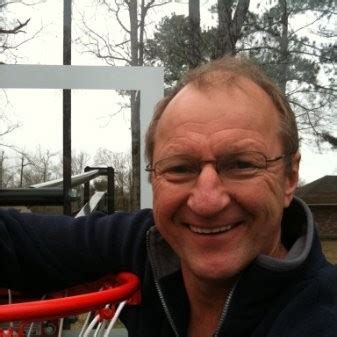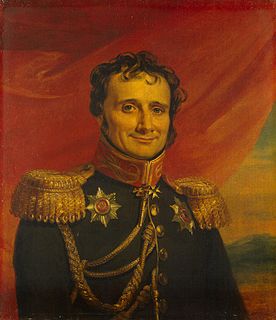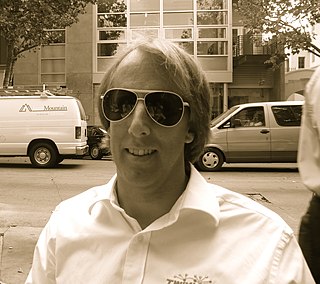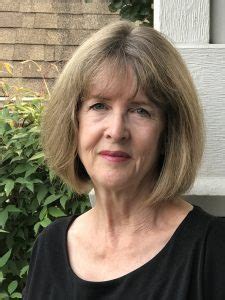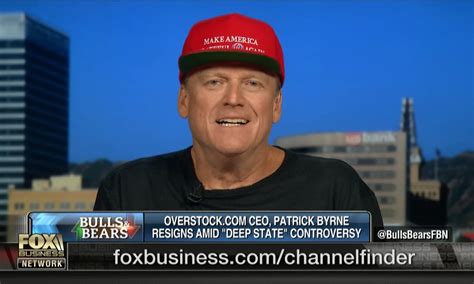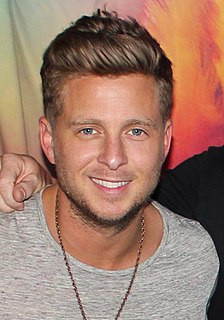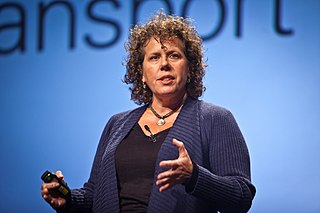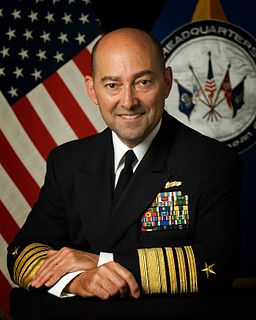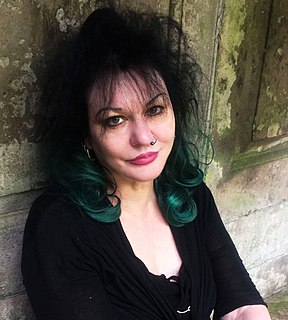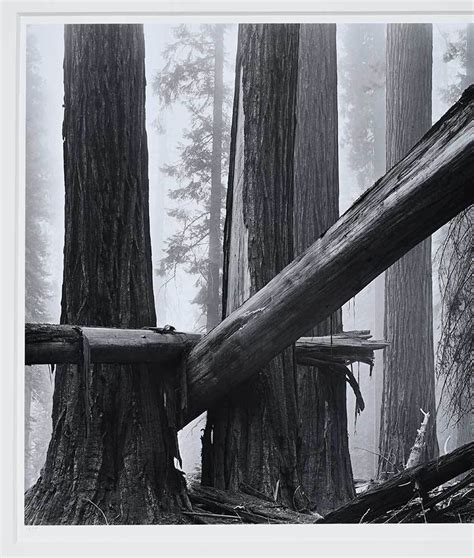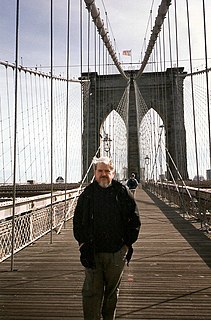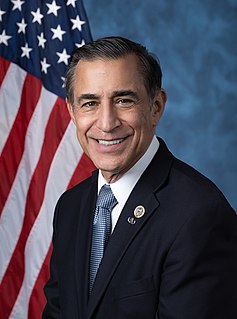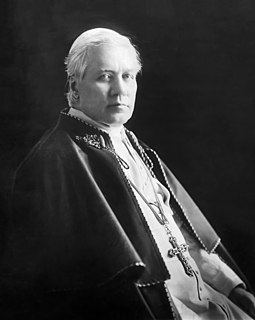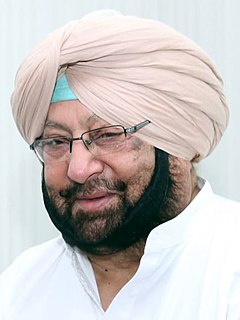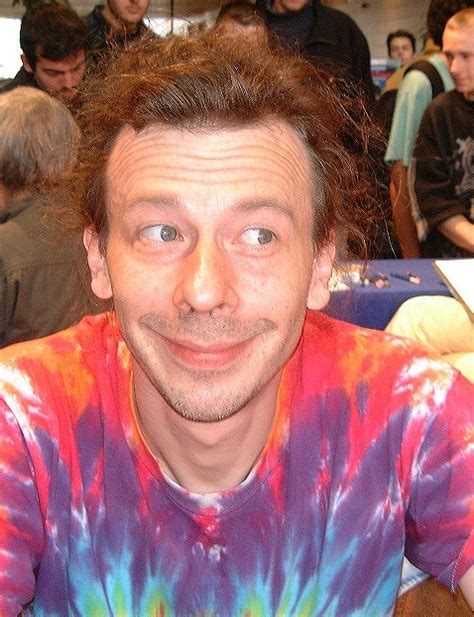Top 1200 New Information Quotes & Sayings - Page 14
Explore popular New Information quotes.
Last updated on April 21, 2025.
What we do is we combine information collected from any lawful source in a single FBI database so we don't miss a dot when we're conducting investigations in the United States. What we make sure of, though, is nobody gets to see FISA information of any kind unless they've had the appropriate training and have the appropriate oversight.
I worry that the level of interrupt, the sort of overwhelming rapidity of information — and especially of stressful information — is in fact affecting cognition. It is in fact affecting deeper thinking. I still believe that sitting down and reading a book is the best way to really learn something.? And I worry that we’re losing that.
The media plays an essential role in our culture. It is the Fourth Estate; it's an undeniably essential instrument in the great American experiment - in keeping our democracy functional. People have very strong opinions about what that means and how information should be disseminated to a population that requires information.
The Internet has been an invaluable acquisition. I wonder how we would do without it. Information can be sent from one country to the other within the space of minutes, crossing channels, crossing oceans, crossing continents. But still, we can't compete with the might and power and wealth of those who dominate, control, and own the means of the production of information today.
I had the evidence that a crash did happen here....Give this information to the young people of the world and this country....They want it. Give it to them. Don't hide it and tell lies and make stories. They're not stupid....It's their information. It doesn't belong to the Army or the Department of Defence. If it's classified, take the classification off and give it to them!
But it is almost impossible to communicate with them [one's spies in the enemy camp] and receive the information they possess ... Even when the general receives from his spies information of movements, he still knows nothing of those which may since have taken place, nor of what the enemy is going finally to attempt.
Too many scholars think of research as purely a cerebral pursuit. If we do nothing with the knowledge we gain, then we have wasted our study. Books can store information better than we can--what we we do that books cannot is interpret. So if one is not going to draw conclusions, then one might as well just leave the information in the texts.
Governmental surveillance is not about the government collecting the information you're sharing publicly and willingly; it's about collecting the information you don't think you're sharing at all, such as the online searches you do on search engines... or private emails or text messages... or the location of your mobile phone at any time.
The Internet is merely a new means of communication, that's all it is. It serves the purpose of getting information, which it is fantastic at. I mean, I live by the Internet in terms of research and it's incredible - there's nothing that you can't find out about. It's not stopped me going to bookshops but I must say that I don't go into as many because any book I want.
I think it was Samuel Johnson who said, "There are two kinds of information in this world: that what you know and that what you know where to get." The tools help the latter, and that's what keeps us from going nuts. The sense of overload comes from the gap between that sudden jump in volume (of information) and the tools we have to make sense of it.
You have women that are political commentators that are talking about the elections, talking about the news of the day, and really helping shape how information is disseminated. I feel we're reaching a whole new audience, which is great to be able to bring in and encourage other young women to do this.
I think the most exciting thing is access to information. People's ability to document things and expose things that may have not otherwise been documented and exposed. All the information you want is available instantly, which is overwhelming, but I think can have a positive change on the political process and accountability for leaders and corporations.
I am confident that for the foreseeable future (barring some catastrophic event affecting economic, energy, electrical, and communications systems), many subpopulations that use information intensively (e.g., students, academics, library patrons, white collar workers) will be using some sort of portal information appliance.
We still have to realize that if you are say a historian of the Civil War, you don’t know anything special about say Columbus or for that matter the 20th century. You are a consumer of that information, especially if it’s stuff like Columbus and the American Indians. That information isn’t even in history, much of it. Much of it is in anthropology or archeology.
We know that flat and non-hierarchical systems use information best. I've tried to do that with my own company because it works better that way. And society at large will work better as well if we can get rid of these old institutions and hierarchies. New innovations like the block chain can make this possible.
Energy, health care and education are just three examples of areas in which information and information management are critically important. How are we using our energy? What appliances in homes or business are consuming the most energy? When do they consume it? Can the load be shifted? How efficient are these devices?
If you're talking to an architect, he can look at a blank piece of paper, and once the initial design is there, the formula kicks in. Each room should have something unique and different about it - much the same way that in a song, every eight bars or so, a new piece of information should be introduced.
The idea would be in my mind - and I know it sounds strange - is that the most important advances in medicine would be made not by new knowledge in molecular biology, because that's exceeding what we can even use. It'll be made by mathematicians, physicists, computer scientists, figuring out a way to get all that information together.
Not many years ago, it was access to information and movement that seemed our greatest luxury; nowadays it?s often freedom from information, the chance to sit still, that feels like the ultimate prize. Stillness is not just an indulgence for those with enough resources ? it?s a necessity for anyone who wishes to gather less visible resources.
I'm inspired by dreams and shadows, obsession and desire. By nature, I'm a dream collector and never stop working. I question people about their weirdest dreams and the strangest, most inexplicable experiences they've had. All this information whirls around in my mind, and new dreams emerge that form the seeds of stories and novels.
I think America is less safe on a lot fronts, and I disagree with the release of the information from Dianne Feinstein. I think she's as much a traitor to this country at this point as I thought about Edward Snowden and his release of information about other investigations and abilities from an intelligence standpoint.
Generally you should act somewhere between P40 and P70, as I call it. Sometime after you have obtained 40 percent of all the information you are liable to get, start thinking in terms of making a decision. When you have about 70 percent of all the information, you probably ought to decide, because you may lose an opportunity in losing time.
Consider: The human genome consists of about 3.3 billion base pairs. Since there are only four types of pair, that amounts to 0.8 gigabytes of information, or about what you can fit on a CD. With a microwave radio transmitter, you could beam that amount of information into space in a few minutes, and have it travel to anyone at light speed.
An important verity about knowledge is that the brain works most effectively with consciously retained information. We more easily remember what we want to recall later. When we feed our fourteen billion brain cells with information that will enrich us and help others, we are really learning to Think Big.
Any schemes - such as 'think of symmetry laws', or 'put the information in mathematical form', or 'guess equations'- are known to everybody now, and they are all tried all the time. When you are stuck, the answer cannot be one of these, because you will have tried these right away...The next scheme, the new discovery, is going to be made in a completely different way.
I think the use of language is a very important means by which this species, because of its biological nature, creates a kind of social space, to place itself in interactions with other people. It doesn't have much to do with communication in a narrow sense; that is, it doesn't involve transmission of information. There is much information transmitted but it is not the content of what is said that is transmitted.
If neuroscientific research shows that those mechanisms only contain comparative information about colour differences, and have 'thrown away' more fine-grained information about the absolute colours of single surfaces, then that would support my position, in a way that just introspecting our colour experiences can't.
We get information in the mail, the regular postal mail, encrypted or not, vet it like a regular news organization, format it - which is sometimes something that's quite hard to do, when you're talking about giant databases of information - release it to the public and then defend ourselves against the inevitable legal and political attacks.
It is impossible to approve in Catholic publications of a style inspired by unsound novelty which seems to deride the piety of the faithful and dwells on the introduction of a new order of Christian life, on new directions of the Church, on new aspirations of the modern soul, on a new vocation of the clergy, on a new Christian civilisation.
Today your technology is far more sophisticated. Forget about sending a reconnaissance aircraft, your satellites provide you information on a minute-to-minute basis. Similarly, when missiles were fired, every missile has a camera in its cone, on its nose, and it keeps relaying information until the point of its impact.
The New Apostolic Reformation is an extraordinary work of the Holy Spirit that is changing the shape of Christianity globally. It is truly a new day! The Church is changing. New names! New methods! New worship expressions! The Lord is establishing the foundations of the Church for the new millennium. This foundation is built upon apostles and prophets. Apostles execute and establish God's plan on the earth.
It's crazy to me that in this world of electronic medical records Walmart has so much information about how we shop, but no one has that information about our health. Why can't my doctor say, 'Wow, Anne, based on your lifestyle and behavior, you're five years from being diabetic.' But I can go to Target, and they know exactly what I'm going to buy.

